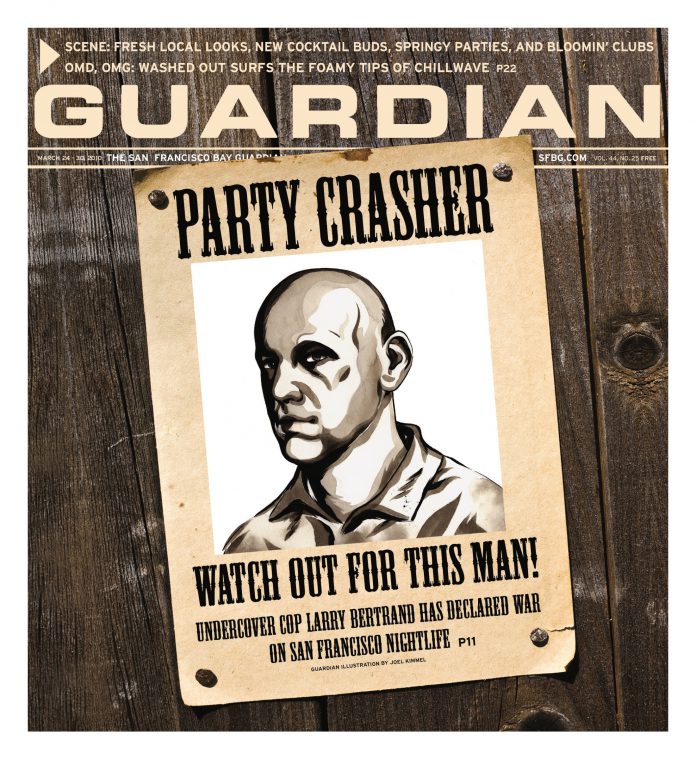arts@sfbg.com
THEATER The white scrim separating the audience from the stage is an immediately impressive aspect of Marilee Talkington’s solo autobiographical play, Truce, in which the American Conservatory Theater–trained actor, director, and writer recounts growing up and coming to terms with a rare congenital disease — cone-rod dystrophy — that has gradually been taking her eyesight from her. The milky white gossamer screen creates a permanent distance, a soft distortion, through which the play attempts communication, understanding, and empathy.
There is also visible, at different times and to varying degrees, a vibrating, pixilated cloud projected onto the center of the scrim, mimicking the central vision that has by now irremediably disappeared (Talkington explains that she is now legally blind in her peripheral vision and without sight in the center of her vision). At the outset of the piece, we see Talkington slowly crossing at an angle downstage, set and lighting designer Andrew Lu’s solitary spot trained on her from behind, as she heads cautiously away from the light into the shadow cast by her own form. This initial movement is symbolically rich, full of an inner truth but at the same time misleading, since Talkington soon proves a boisterous, agile stage presence.
The disease, for which there is no current treatment or cure, was inherited from her mother, who also has it, and much of Talkington’s at times moving but dramatically uneven play is given over to working through the difficult relationship she has had to the feisty woman who gave her life as well as her powerfully alienating condition. But despite the seeming bleakness of the subject matter, Truce is full of vigor, humor, and, as the title suggests, gradual acceptance and, at the least, a preliminary form of reconciliation.
Talkington, moreover, is a charmer — a necessary survival trait, she suggests, of growing up with radical difference. That difference is at no time more apparent than in the eye contact Talkington describes maintaining with any seeing interlocutor, even though her only chance of taking them in visually is by approaching them from her periphery. This specific but central compromise remains a poignant summation of Talkington’s ongoing negotiation of the “I” and the “eye,” of the territory she stakes for herself in a sighted world.
On the largely bare stage, Talkington moves about in varying moods of determination, exuberance, tentativeness, and isolation (the spare but apt choreography is by Sonya Smith), at several points softly iterating the math of ocular deterioration, measuring the growing gulf between herself and the visible, “20/10, 20/60, 20/100, 20/400 …” In this West Coast premiere, directed by Crowded Fire’s Marissa Wolf, the action unfolds smoothly, often cleverly, with a minimum of fuss — like the way Talkington scoots around the stage on a wheeled stool, a collapsible white cane held out before her, crooked like handlebars, as she describes her legally blind mother’s bravado cruising on her electric three-wheel cart.
The negotiation with her mother, like her negotiation with the sighted world, takes a variety of forms in Talkington’s narrative, but the script (cowritten with playwright Justin Quinn Pelegano) proves rather too heavy with explication and underscored morals — as well as admittedly often charming vignettes from her past, including a deservedly starring role on her high school basketball team — and as a result forgoes, despite the evocative aesthetics of the scenic design, prolonged immersion into the profound existential meaning of her journey. Instead, its confessional quality can feel forced. Talkington is a capable mimic, but her mother does not quite sound like a fully-fledged character here, despite being at the thematic center of things. Talkington’s is a dramatic and challenging story, but we only just begin here to sense the implications it might have for us on the other side of the scrim, at the edge of the light.
TRUCE
Through April 3
Wed-Sat, 8 p.m., $10–$25
Noh Space
2840 Mariposa, SF
(415) 826-1958

